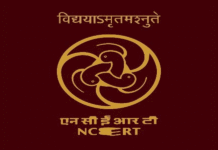Car Nicobar, June 13: The District Planning Committee (DPC) meeting for Nicobar District concluded on June 12 after a two-day deliberation at the District Office Conference Hall in Perka, Car Nicobar. The session, held on June 11 and 12, was chaired by Deputy Commissioner Amit Kale and saw participation from the Member of Parliament, tribal council leaders from across the islands, and senior officials from all line departments.
The primary focus of the meeting was to finalize the Annual Action Plan for the financial year 2025–26. The forum also served to review the implementation status of previously approved schemes and address developmental gaps identified in earlier DPC sessions.
A total of 23 line departments presented their proposed plans and Action Taken Reports (ATRs), outlining steps taken in response to past recommendations and issues. This practice, aimed at reinforcing transparency and administrative accountability, formed a critical part of the planning discussions.
Tribal council representatives played a prominent role in the dialogue, raising location-specific concerns around infrastructure, service delivery, and livelihood generation. Their inputs were factored into the final planning framework, with discussions yielding several community-centric action points.
The Deputy Commissioner emphasized the need for better inter-departmental coordination to ensure timely execution of projects. He assured all participating tribal representatives that demands raised would be addressed systematically and incorporated into the district’s implementation pipeline based on priority and feasibility.
One of the notable takeaways from the meeting was the collaborative tone it set. Both tribal leaders and departmental heads appeared aligned in their vision to deliver tangible development outcomes through structured and inclusive governance.
Officials from the education, health, rural development, and public works departments provided updates on ongoing infrastructure projects, healthcare schemes, and employment initiatives. Feedback from tribal leaders helped identify logistical bottlenecks, service deficits, and opportunities for decentralizing project execution.
In addition to finalizing the action plan, the meeting also functioned as a confidence-building mechanism between the administration and local governance bodies. By bringing all stakeholders to the same table, the DPC has positioned itself as a vital mechanism for responsive governance in the tribal-dominated district.
The concluding session reflected a sense of mutual resolve, with participants committing to improved service outcomes, efficient fund utilization, and greater community involvement in monitoring development progress.
With the action plan now in place, the administration is expected to follow through with quarterly reviews and inter-agency coordination to keep pace with the timelines set. The implementation of this roadmap will be closely watched, particularly in sectors like education, water supply, and connectivity, which remain core concerns in the island district.
The DPC meet reaffirms the administration’s intent to pursue development that is both inclusive and responsive to local needs. With all eyes now on execution, the coming months will determine how effectively these plans translate into real-world impact for the people of Nicobar.





